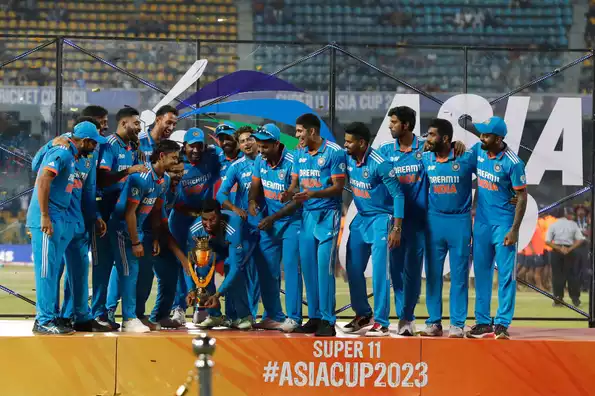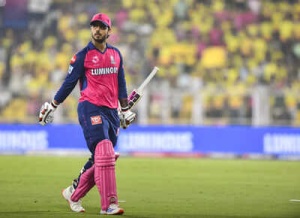The Asia Cup saga may be approaching a resolution. While definitive conclusions remain premature, a palpable sense of optimism has emerged regarding the tournament, a notable shift from prior uncertainties fueled by tensions between India and Pakistan.

Although concrete details are pending, indications suggest a formal decision could materialize next week. The Asian Cricket Council (ACC) anticipates unveiling the schedule for the six-team tournament in early July, coinciding with its expected convention.
The ACC is reportedly aiming for a mid-September start, tentatively targeting September 10 for the tournament's commencement. The T20 format competition will feature India, Pakistan, Afghanistan, Sri Lanka, Bangladesh, and the UAE. Promotional activities for the tournament have already begun.
The UAE remains the leading contender to host the event, although discussions regarding a hybrid hosting model are also underway. While India is the designated host, ACC regulations stipulate that when India or Pakistan are scheduled to host the Asia Cup, it must be held at a neutral venue.
Uncertainty clouded the tournament following the terror attack in Pahalgam in April. Subsequent escalation occurred after India's Operation Sindoor against Pakistan in May, raising concerns about the tournament's viability. Calls for boycotting Pakistan in multilateral events also intensified within India. India currently refrains from bilateral cricket engagements with Pakistan. Discussions regarding a potential boycott of Pakistan in global events were even rumored for the next ICC meeting.
However, recent developments in international cricket hint at a potential shift. The International Cricket Council (ICC) recently unveiled schedules for two major events: the Women's ODI World Cup in India and Sri Lanka, and the Women's T20 World Cup in England. Notably, India and Pakistan are slated to compete against each other in both tournaments – October 5 in Colombo and June 14 at Edgbaston, respectively.
Despite the silence from BCCI, ACC, and ICC officials, it appears that cricketing ties between the two rivals will continue, at least in global events. These matches are significant revenue streams for global cricket. While India and the Board of Control for Cricket in India (BCCI) may not heavily rely on the revenue generated from these high-profile encounters, governing bodies like the ICC and ACC, along with their member boards, do.
Newer articles
Older articles
 Smith Targets Test Return After Baseball Cage Recovery Stint
Smith Targets Test Return After Baseball Cage Recovery Stint
 Rishabh Pant's Fearless Batting Revolutionizing Test Cricket, Says Greg Chappell
Rishabh Pant's Fearless Batting Revolutionizing Test Cricket, Says Greg Chappell
 Gavaskar Calls for Kuldeep Yadav's Inclusion Amid Bumrah Fitness Concerns Ahead of Second England Test
Gavaskar Calls for Kuldeep Yadav's Inclusion Amid Bumrah Fitness Concerns Ahead of Second England Test
 Oral Cancer: Spotting the Signs, Understanding the Risks, and Why Early Detection is Key to Survival
Oral Cancer: Spotting the Signs, Understanding the Risks, and Why Early Detection is Key to Survival
 5 Silent Signals of Prediabetes You Shouldn't Ignore
5 Silent Signals of Prediabetes You Shouldn't Ignore
 Vitamin D Could Slash Tooth Decay Risk by 50%, New Study Finds
Vitamin D Could Slash Tooth Decay Risk by 50%, New Study Finds
 Silent Signals: Don't Ignore These 5 Early Warning Signs of Liver Disease
Silent Signals: Don't Ignore These 5 Early Warning Signs of Liver Disease
 Akmal Slams PCB's Interim Coach Pick: Questions Logic Behind Mahmood Appointment
Akmal Slams PCB's Interim Coach Pick: Questions Logic Behind Mahmood Appointment
 Brain's "15-Second Rule" Explains Why You're Always Seeing the Past, Study Reveals
Brain's "15-Second Rule" Explains Why You're Always Seeing the Past, Study Reveals
 Nitish Rana Eyes Delhi Return After Disappointing Uttar Pradesh Stint
Nitish Rana Eyes Delhi Return After Disappointing Uttar Pradesh Stint